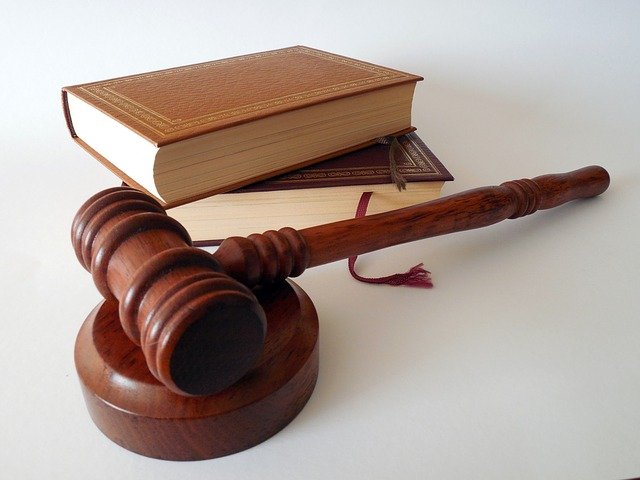Thousands of people are fired every day. But while some employees lose their jobs due to poor performance or inappropriate behavior, others are victims of wrongful termination – and you may be one of them. If you were fired because of workplace discrimination, or because your boss wanted to retaliate against you, you should speak with a New Jersey wrongful termination lawyer as soon as possible. If your employer broke state or federal worker protection laws by firing you, you could be entitled to financial compensation.
What is Wrongful Termination?

In order to determine whether you have a case against your employer, you need to understand what “wrongful termination” means. While the concept may seem simple, many people have inaccurate ideas about what does and doesn’t constitute wrongful termination.
Wrongful termination does not mean firing an employee for poor job performance, frivolous or petty reasons, or even for no reason at all. Since New Jersey observes at-will employment laws, New Jersey employers may fire employees without cause or warning.
In fact, there are only two basic types of scenarios where an employee’s termination might be considered “wrongful”:
- The employee was fired because he or she took an action protected by law. Such an action is called “protected conduct” or “protected activity.” New Jersey whistleblower lawyer Usmaan Sleemi will discuss some examples of protected conduct in the next section of this article.
- The employee was fired because he or she possessed certain traits. Having certain personal traits, which the next section will examine more closely, can place a worker into a “protected class.” While it is legal to fire such a worker for other reasons, such as poor performance or absenteeism, it is illegal to fire the worker solely because of the protected trait.
Can I Sue My Employer for Firing Me?
If you were fired because you belonged to a protected class or participated in protected conduct, you may be able to sue your employer. But what does it mean to “belong to a protected class”? And what counts as “protected conduct”?
To start with the second question, “protected conduct” can refer to any of the following:
- Filing any sort of complaint or workplace accident report against your employer
- Reporting your employer for breaking the law (“whistleblowing”)
- Serving in the military

A “protected class” is any group of workers who share a common trait that places them at risk for employment discrimination. It is illegal to fire an employee because he or she is part of a protected class.
It may sound surprising, but as the Equal Employment Opportunity Commission (EEOC) points out, “Every U.S. citizen is a member of some protected class.” That is because basic traits like sex, ethnicity, age, and skin color are all protected by a combination of state and federal anti-discrimination laws. Examples of protected classes include:
- Disabled workers. Under the Americans with Disabilities Act (ADA), it is illegal to fire workers due to a mental or physical disability.
- Male and female workers. Under Title VII of the Civil Rights Act of 1964, it is illegal to fire workers due to their sex. This applies to both men and women.
- Workers over age 40. Under the Age Discrimination in Employment Act (ADEA), it is illegal to fire employees because of their age, which is called “ageism.”
- Workers of a particular race, or who come from a particular country. Racial discrimination is banned by Title VII of the Civil Right Act, as is discrimination on the basis of skin color or national origin.
- Workers who practice or follow a religion. Title VII of the Civil Rights act bans workplace religious discrimination, which includes termination.
Exceptions can arise in specific situations. (For instance, a film may need to cast an actor who is below a certain age to play a specific character.) However, New Jersey enforces some of the nation’s most comprehensive labor laws. Not only does the New Jersey Law Against Discrimination (LAD) ban employment discrimination on the basis of disability, sex, age, race, color, national origin, and religion, like the federal laws listed above – it also bans workplace discrimination due to:
- Ancestry
- Certain genetic characteristics
- Gender identity
- Marital status (including domestic partnerships and civil unions)
- Sexual orientation
Keep in mind that workplace discrimination expands beyond wrongful termination. It also includes demoting employees, disciplining employees, withholding employee benefits, and making other business decisions. A New Jersey employment discrimination lawyer can help you understand whether your employer’s actions broke the law and violated your legal rights.
New Jersey Wrongful Termination Attorney Fighting for Employees’ Rights

If you were fired for any of the reasons discussed in this article, such as racial discrimination, gender discrimination, or whistleblower retaliation, you are urged to consult with a New Jersey employment law attorney right away. If you suffered financial harm because your employer violated the LAD, the Civil Rights Act, the ADA, the ADEA, or other labor laws, you may have cause to file a lawsuit. For a free legal consultation about wrongful termination or other forms of employment discrimination in New Jersey, contact the Law Offices of Usmaan Sleemi online or by by phone.

